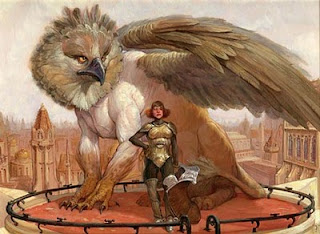Foi publicado no site Publishing Perspectives uma entrevista em 26 de Julho, com o autor e ilustrador Adam Rex, que escreve sobre vampiros adolescentes e livros infantis. Conduzida por Edward Nawotka, ele fala sobre esta febre atual que atrai os adolescentes, cada vez mais, a estes seres sobrenaturais.
Tomei a liberdade de reproduzir a entrevista na integra, que poderá ser conferida no site da Publising Perspectives com o título Stephanie Meyer conta tudo!!!!
ILUSTRAÇÃO DE ADAM REX (É maravilhosa!!!!)
“PP: So Adam, what is the deal with vampires and teenagers?
The vampire is sort of a ripe metaphor for the way teenagers feed off of each other for their own glory and gratification. But this is counter to the way vampires have been recently portrayed: it’s no longer about the vampire as a villain, it’s more about the wish fulfillment of being frozen at your physical peak, taking the story away from its folksy, boogeyman origins.
PP: Is this book really the “anti-Twilight.” You did, after all go to high school in Phoenix, where Stephenie Meyer lives, and you two are approximately the same age…
I did go to high school in Phoenix and live in Tucson now, but no, I didn’t write this in response to Twilight. I don’t expect anyone to believe me, but I still haven’t read the Twilight books. I started this in 2007, and the only vampire book I’ve read is Dracula. I had no idea vampires stories were going to become so pervasive in the following three years. Whoops.
PP: Does the character of Doug bear any relation to you as a teenager?
Doug is an unflattering exaggeration of the person I was in high school– he’s a misanthrope – and like him, I started out as a victim and thought because I was a victim that I also must be one of the good guys. But as my star started to rise and as I gained power and influence, and my victimhood was stripped away from me, I realized I wasn’t such a good person after all. I understood I’d have to try consciously to be a good person because it wasn’t coming to me as naturally as I would have liked.
PP: Do you think we over-romanticize our teenage years?
People say there is a portion of the brain that considers consequences and long term plans and that is not finished growing in the teen age years. You’re not even capable of making decisions in an adult way at that point in life. Now as a 36 year old I may be in the minority in that I’m happier as a 36 year old. I’d never go back to being a teenager. I’m not particularly proud of who I was. I didn’t have a lot of empathy for people and didn’t consider how actions would play out in other people’s lives.
PP: Doug is involved with the “theater kids” who have been going through a kind of renaissance with the show Glee…
Yes, and with High School Musical. Being a former theater person, it’s just not as disreputable as it once was. They were the most self-indulgent kids in the entire school. The ones who took the expression of the world as a stage quite literally.
PP: You say that some readers have confused you and Doug. You’re not a vampire…are you Doug, errr, Adam?
Doug has some immature and thoughtless opinions about the world — particularly about the sexes and homosexuality — and these somewhat reflect how I felt 20 years ago, but not now… I mean I am a misanthrope. I mean I am a misanthrope, but I like to think of myself as lovable misanthrope.
PP: Did you start as a writer or an illustrator?
An illustrator – I did a lot of illustrations for Dungeons & Dragons games… Orcs with bloody axes, dragons, goblins, that sort of thing. Fat Vampire is a little weird for me, because it didn’t include any illustrations whatsoever – I didn’t want it to be mistaken as being for younger kids. It is a little odd to have once been an illustrator who merely wanted to write and to now have my first YA novel come out without any illustrations in it.
PP: So you were the geek in high school sitting there with a notebook covered with wizards?
No, I was smart enough to be surreptitious about it…I never thought about it before, but I was always the Dungeon Master in these games and that was probably my first foray into a regular storytelling gig. I had to come up with these storytelling campaigns and narratives on the fly. I wonder if it wasn’t good training for what I’m doing now.
PP: There’s a scene in the book where Doug and his friend go to San Diego ComicCon. What inspired it?
That is how I got started as an illustrator, by going to ComicCon and looking for work –there used to be a bloodmobile outside the convention center, where if you gave blood, they’d give you comic books. It seemed too good of an opportunity to pass up for Doug to stock up on a little blood.
PP: Is there something you want people to take away from having read the novel?
The book is a lot funnier than I’m making it sound. The initial idea was Superbad with Vampires and it went off in its own direction from there. And it’s not a treatise on anything. I’m not smart enough to write a treatise. It’s more like a bawdy vampire story with an undercurrent of morality.”


Comentários
Postar um comentário
Obrigada, seu comentário é muito importante.
Caso vá comentar no modo anonimo, por favor assine seu comentário.
Obrigada pela participação.